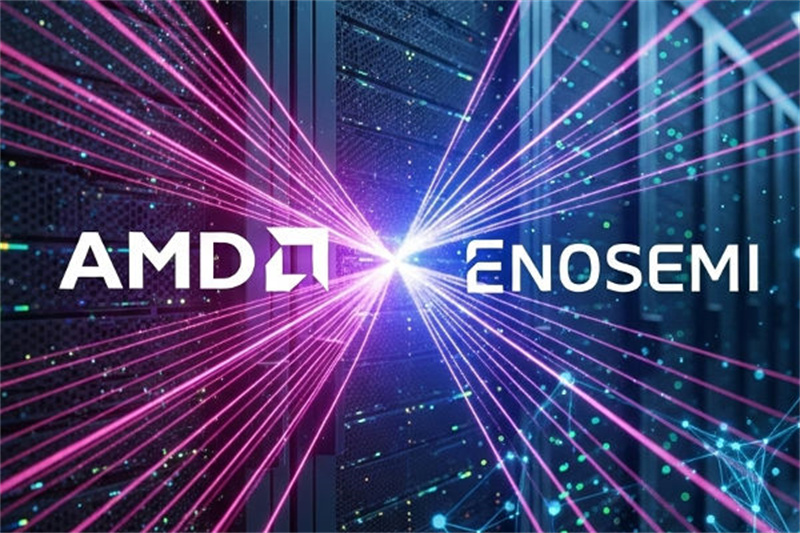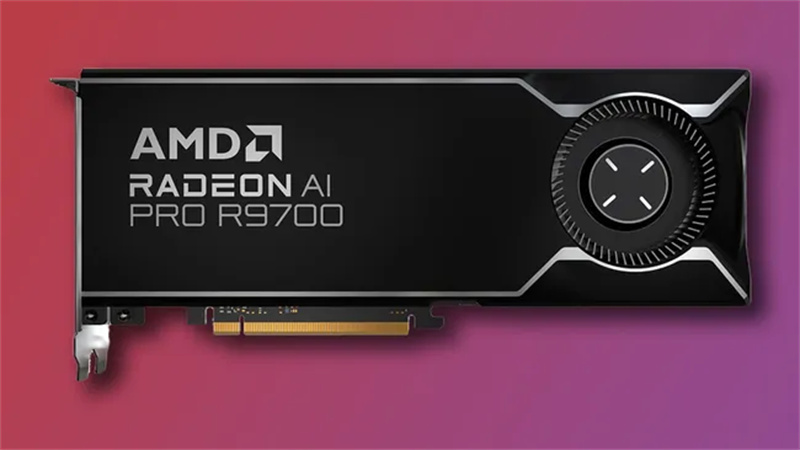AMD has acquired silicon photonics startup Enosemi as part of its ongoing push to become a full-stack AI solutions provider. The deal, announced on May 28, underscores AMD's strategic focus on co-packaged optics (CPO), a key enabler of next-generation AI system performance. Financial terms were not disclosed.
Founded in 2023 and based in Silicon Valley, Enosemi specializes in photonic integrated circuits (PICs)—chips that use light rather than electricity to transmit data. These high-speed, low-power devices are gaining momentum in data-intensive applications such as AI, cloud computing, and next-gen communications. Enosemi's team of PhDs and technical experts has a proven track record in volume production of PICs and recently partnered with Jabil on advanced packaging.
Brian Amick, AMD's SVP of Technology and Engineering, noted that integrating Enosemi will allow AMD to “immediately expand support for a wide range of photonics and co-packaged optics solutions” as AI workloads grow in scale and complexity. CPO offers higher bandwidth density and better power efficiency than traditional electrical interconnects—an essential leap forward as AI infrastructure demands accelerate.

This acquisition builds on AMD's recent efforts to expand its AI ecosystem through strategic acquisitions, including Xilinx (adaptive SoCs), Pensando (networking), Silo AI and Mipsology (software), and ZT Systems (rack-scale systems).

In parallel, AMD is developing new AI chips tailored for the Chinese market in response to U.S. export restrictions. According to DigiTimes, the upcoming Radeon AI PRO R9700, expected to launch in Q3 2025, is designed for local inference workloads and supports multi-GPU scaling—similar to NVIDIA's strategy with its upcoming B20 GPU. Both chips are adjusted to comply with Washington's performance caps on AI hardware exports to China.
Despite facing an $800 million write-down for its MI308 chip—deemed too powerful for export—AMD, like NVIDIA, remains committed to the Chinese market. NVIDIA CEO Jensen Huang recently acknowledged a $5.5 billion loss tied to restrictions on its H20 chip, yet demand for these adjusted GPUs remains strong among Chinese institutions. Quarterly sales of NVIDIA's H20 reportedly continue to grow by 50%, driven by ecosystem compatibility and software maturity.
While neither company can offer its top-tier products in China, demand for compliant chips like the R9700 and B20 remains solid, especially as AI developers continue optimizing models for existing platforms. "AI researchers are still doing AI research in China," Huang said. "If they don't have enough Nvidia, they will use their own—the second best."
AMD's dual strategy—building long-term innovation with photonics and meeting near-term market needs in China—signals its commitment to global AI leadership amid evolving geopolitical and technological landscapes.
+86 191 9627 2716
+86 181 7379 0595
8:30 a.m. to 5:30 p.m., Monday to Friday
